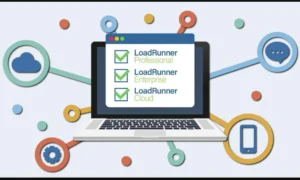As the demand for skilled data scientists continues to grow, data science bootcamps have emerged as a popular and efficient way to kickstart a career in this field. These intensive training programs offer practical, hands-on learning experiences to equip individuals with the necessary skills and knowledge to excel in data science roles. However, with a plethora of options available, choosing the right data science bootcamp can be a daunting task. In this comprehensive guide, we will explore key factors to consider when selecting a data science bootcamp to ensure you make an informed decision.
Define Your Goals and Learning Objectives
Before starting your search for a data science bootcamp, it is important to define your goals and learning objectives. Determine the specific skills you want to acquire or enhance during the bootcamp. Consider factors such as the duration of the program, your preferred learning style (online, in-person, or hybrid), and the level of expertise you wish to achieve (beginner, intermediate, or advanced). Having clear goals will help you narrow down your options and find a bootcamp that aligns with your aspirations.

Curriculum and Course Content
Evaluate the curriculum and course content offered by different bootcamps. Look for programs that cover a comprehensive range of topics, including statistics, machine learning, data visualization, programming languages (such as Python or R), and data manipulation. Assess the depth and breadth of the curriculum to ensure it provides a well-rounded understanding of data science concepts and tools. Additionally, check if the curriculum is regularly updated to keep pace with evolving industry trends and technologies.
Teaching Methodology and Instructors’ Expertise
Research the teaching methodology employed by the bootcamp and assess its suitability for your learning style. Some bootcamps follow a project-based approach, while others focus on theoretical concepts and hands-on exercises. Consider your preferred learning style and choose a bootcamp that offers a teaching methodology that resonates with you.
Equally important is the expertise and experience of the instructors. Look for bootcamps that employ industry professionals or experienced data scientists as instructors. Their real-world knowledge and practical insights can greatly enhance your learning experience.
Hands-on Projects and Capstone Assignments
Practical experience is crucial in data science. Evaluate the bootcamps approach to hands-on projects and capstone assignments. Projects provide an opportunity to apply theoretical concepts to real-world scenarios, helping you develop problem-solving and analytical skills. Check if the bootcamp offers industry-relevant projects and provides guidance and mentorship throughout the project completion process. A strong emphasis on practical application will better prepare you for real-world data science challenges.
Alumni Success and Industry Connections
Consider the success and achievements of the bootcamps alumni. Look for testimonials, success stories, or LinkedIn profiles of former students to gauge the bootcamps track record. Assess the career outcomes of alumni, such as job placement rates, internships, or successful transitions into data science roles. Furthermore, inquire about the bootcamps industry connections and partnerships with companies. Strong connections can lead to networking opportunities, internships, and potential job placements.
Bootcamp Duration and Flexibility
Evaluate the duration and flexibility of the bootcamp. Bootcamp durations can range from a few weeks to several months. Consider your availability and commitment level when choosing the duration. Additionally, check if the bootcamp offers part-time or full-time options to accommodate your schedule. Some bootcamps also provide self-paced learning options, allowing you to learn at your own pace. Assess the flexibility and time commitment required to ensure it aligns with your personal circumstances.
Supportive Learning Environment and Resources
A supportive learning environment can greatly enhance your learning experience. Research the bootcamp’s approach to student support and resources. Find out if they provide mentorship or tutoring opportunities, discussion forums, or a dedicated support team to assist students with any queries or challenges. Additionally, check if the bootcamp offers access to learning materials, libraries, or online resources to support your learning journey.
Cost, Financing Options, and Return on Investment
Consider the cost of the IT bootcamp and evaluate its value in relation to the curriculum, quality of instruction, and career prospects. Compare the tuition fees of different bootcamps and assess the return on investment in terms of career advancement opportunities and salary potential. Some bootcamps offer financing options, scholarships, or income share agreements (ISAs) that allow you to defer payment until you secure a job. Consider your financial situation and explore available options to make an informed decision.
Alumni and Student Community
The strength of the alumni and student community can play a significant role in your learning experience and professional networking. Research the bootcamps alumni network and online communities. Look for opportunities to connect with current students or alumni through events, forums, or alumni associations. A strong community can provide ongoing support, collaboration opportunities, and valuable industry connections.
Conclusion
Choosing the right data science bootcamp is a crucial step towards launching a successful career in this rapidly growing field. By considering factors such as your goals, curriculum, teaching methodology, practical experience, alumni success, and supportive learning environment, you can make an informed decision. Remember to assess the bootcamps industry connections, cost, and return on investment to ensure it aligns with your career aspirations. With diligent research and thoughtful consideration, you can select a data science bootcamp that empowers you with the skills and knowledge needed to excel in the dynamic world of data science.





























